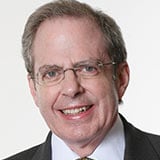Buybacks have been an increasingly important driver of market gains in recent years, notes Stephen Leeb of The Complete Investor. The advisor also highlights an ETF focused on buyback activity.
It's now been 16 quarters since the US economy emerged from recession. Typically, indications of improving economic conditions would have corporate financial officers eager to put money to work to grow their business.
But that hasn't been the case in this expansion. Instead, companies have used a good chunk of their discretionary cash flow to boost dividends and to buy back stock on the open market.
For instance, since the Great Recession's end in mid-2009, the dividends paid by the S&P 500 have risen more than 60%. That puts us in rarefied territory.
Looking at the more than 60 years for which we have data, there have been only three other occasions in which dividend growth reached such lofty heights—in 1952, 1980, and 2006. In each of those cases, stocks continued to advance by a healthy margin before topping out.
The subsequent gains in 2006 and 1980 were impressive: 20% and 18%, respectively. The increase in 1952 was a more subdued, but nevertheless still favorable 8%.
The amount of money being committed to corporate share buybacks lately has likewise been impressive. In fact, more than 100 companies in the S&P have bought back more than 4% of their shares in the past year alone.
The buying hasn't been limited to just one or two industry groups, either. It stretches across most sectors, with the highest concentrations in Technology, Telecom, and Consumer Discretionary.
Like dividends, share buybacks are a vote of confidence in a company's prospects. A buyback reduces the share count, and assuming it's conducted when the stock is cheap, it has the effect of boosting a company's per-share figures, increasing shareholder value.
These buybacks have undoubtedly been an important driver for stocks in the last few years. And with nearly $260 billion in buybacks announced so far in 2013, and likely more to come, they should not only keep a floor under share prices going forward, but also contribute further to the market's advance.
If you're interested in capitalizing on stock buybacks, one way to do so is with the Powershares Buyback Achievers ETF (PKW).
The ETF mimics the performance of the Mergent Buyback Achievers Index, which tracks US companies that have repurchased 5% or more of their outstanding shares in the previous 12 months.
The strategy has proven to be a worthwhile one: since its inception five years ago, the fund has essentially doubled the return of the S&P 500.
Subscribe to The Complete Investor here...
More from MoneyShow.com:










